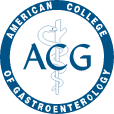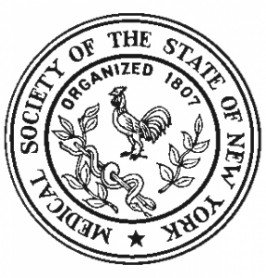A combined colonoscopy and endoscopy enables a doctor to assess both your upper and lower gastrointestinal tract in a single procedure. Common reasons for undergoing both procedures include screening for colorectal cancer and investigating symptoms like abdominal pain or gastrointestinal bleeding. Understanding the time required for these procedures can ease concerns and help patients plan effectively for these important medical exams. Let’s explore how long combined colonoscopies and endoscopies take to give clear expectations for those considering these screenings.
Colonoscopy and Its Applications
A colonoscopy is a medical examination of the colon and rectum. During a colonoscopy, a long, flexible tube with a tiny camera (called a colonoscope) is inserted into the rectum and guided through the colon. This camera allows doctors to visually inspect the colon for abnormalities.
- Colorectal cancer.
- Precancerous polyps.
- Inflammatory bowel diseases (Crohn’s disease or ulcerative colitis).
- Colorectal bleeding.
- Abnormal tissue growth or inflammation.
Endoscopy and Its Applications
An endoscopy examines the interior surface of the esophagus, stomach, and the first part of the small intestine. During an endoscopy, a flexible tube with a light and camera (endoscope) is inserted into the body through the mouth. This allows doctors to visually inspect the lining of the upper GI tract and detect any abnormalities or conditions.
- Esophageal conditions.
- Stomach ulcers or inflammation.
- Peptic ulcers in the duodenum.
- Tumors or abnormalities in the esophagus, stomach, or duodenum.
- Gastroesophageal reflux disease (GERD).
- Celiac disease (by taking biopsies of the small intestine).
- Inflammation or bleeding in the upper gastrointestinal tract.
What is the Goal of a Combined Colonoscopy and Endoscopy?
A combined colonoscopy and endoscopy is often referred to as both upper and lower endoscopy. The goal is to provide a comprehensive evaluation of the entire gastrointestinal tract in a single session. By performing both procedures together, gastroenterologists can efficiently assess the upper and lower digestive systems, including the esophagus, stomach, duodenum, colon, and rectum.
For essential procedures like colonoscopies and endoscopies, you deserve the highest standard of care. At Gastroenterology & Nutrition, P.C., you can trust that you’re in capable hands every step of the way. Schedule your appointment with us today and experience the difference that personalized care can make.
At What Age Should I Start Getting Colonoscopies?
The recommended age to begin colonoscopy screenings varies based on several factors, such as personal and family medical history and guidelines from medical organizations. In 2021, the American Cancer Society (ACS) updated its guidelines. The organization recommended that average-risk individuals begin regular colorectal cancer screening at age 45, rather than at age 50 as previously recommended. This change was made due to the increasing incidence of colorectal cancer in younger adults.
Time Requires for Combined Colonoscopy and Endoscopy
Dr. Yuriy Israel is a renowned gastroenterologist in Forest Hills, NY. He shared insights on how long combined colonoscopy and endoscopy procedures typically take. He said, “Colonoscopy and endoscopy are two different procedures and they’re used to look for different things.” Endoscopy looks for problems in the upper gastrointestinal tract and it generally takes about five to seven minutes. It includes looking at the lining of the esophagus, stomach, and small intestine, as well as taking biopsies. Colonoscopy looks for colon polyps or any issues inside the colon, using a camera inserted through the anus.
The total time for both a colonoscopy and endoscopy ranges from 15 minutes to half an hour. It depends on factors such as:
- Ease of navigating the colon.
- Presence of polyps.
- Time required for polyp removal.”
Conclusion
The fusion of colonoscopy and endoscopy represents a significant advancement in gastrointestinal medicine. It offers patients a streamlined and comprehensive approach to diagnosis and treatment. By combining these procedures, healthcare providers can efficiently evaluate the entire digestive tract. Moreover, the integration of advanced technologies and techniques continues to refine the accuracy and safety of these procedures. Call us now at 718-261-0900 or visit us to learn how we can help you.
Frequently Asked Questions
Do colonoscopies and endoscopies hurt?
Both colonoscopies and endoscopies are typically well-tolerated procedures. Patients may experience some discomfort or pressure during the procedures, but sedation options are available to help minimize any discomfort.
What should I expect after a colonoscopy or endoscopy?
After the procedures, patients may experience mild bloating, gas, or throat irritation, which usually resolves within a day. It’s important to follow post-procedure instructions provided by healthcare providers.
How often should I get a colonoscopy or endoscopy?
The frequency of colonoscopies and endoscopies depends on individual risk factors, age, and medical history. Your healthcare provider can provide personalized recommendations for screening intervals based on your specific needs.





